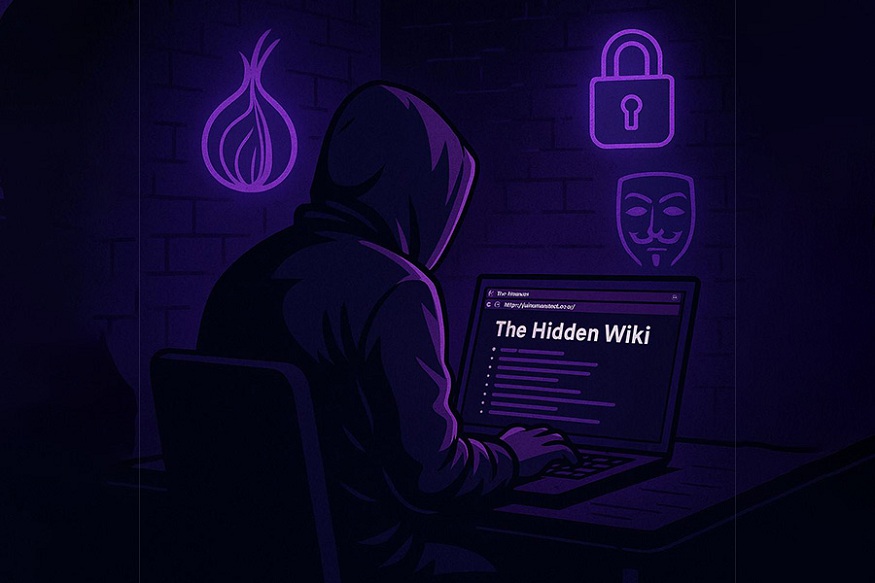How I Found My First Onion Websites on the Hidden Wiki

Like many stories involving curiosity and the internet, mine begins on a late night with too much caffeine and not enough sleep. I was 20, halfway through college, and knee-deep in a phase of digital exploration. I wasn’t necessarily looking for trouble, but I had always been drawn to the internet’s lesser-known corners. I wanted to understand how things worked beneath the surface. And that desire is what eventually led me to the Hidden Wiki and from there, to my very first onion websites.
I’d heard about the Dark Web in whispers and exaggerated news reports, often presented as a digital underworld full of shady deals, illegal activity, and conspiracy theories. But I also knew, from tech blogs and cybersecurity courses, that not everything down there was nefarious. There were journalists, whistleblowers, privacy advocates, and curious people like me who just wanted to explore.
It all started with a question I asked myself: “What is the Deep Web, really?” That led me to articles distinguishing the Deep Web (anything not indexed by search engines—like academic databases, internal corporate systems, etc.) from the Dark Web, which is a smaller portion of the Deep Web accessed via special software like Tor. That’s when the Hidden Wiki came up.
What is the Hidden Wiki?
Basically, it’s like a Wikipedia-style directory for onion websites—sites hosted on the Tor network with .onion addresses instead of .com or .org. These sites aren’t accessible through a regular browser. The Hidden Wiki offered a kind of map to the unfamiliar. Think of it like stumbling across a mysterious, hand-written guide to a city you’ve never been to. The listings were often vague, sometimes misleading, occasionally dangerous—but they were real. And they were all there.
Installing Tor
Getting started meant installing the Tor Browser, which wasn’t hard at all. It’s open source and freely available from the official torproject.org website. I made sure to read their beginner guides and safety tips before diving in. I learned early that anonymity on Tor isn’t guaranteed if you don’t take precautions. So I disabled JavaScript, didn’t download anything, and avoided typing in any personal information anywhere.
I was cautious, but excited. The first time I opened Tor Browser and typed in the address bar thehiddenwiki.qa, I felt a weird rush. The site loaded slowly. The UI looked like something out of the late ’90s—plain white background, basic blue links, almost no design to speak of. But I was in. The front door to the dark web had opened.
The First Clicks
The Hidden Wiki is basically a list of links sorted by category—marketplaces, forums, privacy tools, hosting services, political pages, and yes, some more questionable ones too. Many of the links were broken, and that’s something I had to get used to very quickly. Onion sites often disappear or change addresses without warning. It’s part of the ecosystem.
One of the first sites I visited was called “SecureDrop,” a tool that allows whistleblowers to safely submit documents to journalists. It was run by a legit media organization and gave me my first taste of the good that Tor could do. I clicked through slowly, cautiously, but I felt empowered. This was a place where truth could be shared without fear. It wasn’t scary—it was inspiring.
Next, I checked out some forums. Many of them were filled with people talking about privacy, security, and politics. A few seemed shady—discussing ways to buy things or services that were clearly illegal—but I stayed far away from that. I wasn’t there for that. I was fascinated by the culture. People used aliases and never shared their real names. Everything was about anonymity and protection.
There was one forum where people shared books and essays banned in their home countries. That really struck me. One user from Iran posted a thank-you note to the uploader of a particular book that had been banned for decades. Another user from China said they were reading George Orwell for the first time. This wasn’t crime—it was freedom of information.
A Sense of Scale
The Hidden Wiki made it feel like the Dark Web was huge, but the deeper I went, the more I realized how small and fragile it really was. Sites came and went. Some were scams. Some were mirrors of others. Some were just…weird. There was a whole category for “oddities”—think creepy art projects, surrealist stories, or pages that just looped audio of people whispering nonsense. It felt like the digital equivalent of walking through abandoned buildings in a forgotten part of town. Sometimes haunting. Sometimes beautiful.
I spent a couple of hours browsing that first night, always careful, always skeptical of what I was clicking. I copied URLs into a notepad file so I could revisit them later. Some links led to places that looked like primitive social networks. Others offered nothing more than text files containing manifestos or thoughts from anonymous writers. One site was a library with thousands of PDFs—from textbooks to historical documents to religious texts. It was overwhelming.
Emotions: Fear, Fascination, and Responsibility
There’s no denying that parts of the Dark Web are disturbing. The Hidden Wiki, unfortunately, doesn’t always filter out links that point to illegal or unethical content. Some link names alone were enough to make me feel uneasy. I didn’t click on those. I reported them when possible. But just being near them—even virtually—made me realize how important it is to approach these spaces with a clear ethical compass.
That tension between curiosity and caution became central to my exploration. I felt like I was holding something dangerous and powerful at the same time. Like a secret that most people don’t know exists.
What I didn’t expect was how normal some of it felt too. It wasn’t all shadows and mystery. It was also a place where people just wanted to talk about ideas without being tracked. A place for learning. A refuge. It was empowering to know that the infrastructure exists for people in oppressive regimes to speak freely, if they know how to use it.
What I Learned
By the time I shut down my laptop that first night, I was buzzing with thoughts. I hadn’t done anything illegal. I hadn’t downloaded anything or spoken to anyone. But I had seen a side of the internet that most never do. It was exhilarating—and sobering.
Here are a few takeaways from that experience:
- The Hidden Wiki is a starting point, not a map. Many links are outdated or dangerous. Proceed with extreme caution.
- Not all onion sites are bad. There are genuine use cases for Tor, from activism to privacy-conscious communication.
- Anonymity is fragile. Even on Tor, you’re only as safe as your behavior. Use a VPN, avoid scripts, don’t download files.
- Curiosity is powerful—but it comes with responsibility. There’s a difference between exploration and exploitation.
- The web is so much bigger than most people think. What we see on Google is just a small layer.
Looking Back
That first night exploring the Hidden Wiki and visiting onion sites didn’t make me a hacker or a journalist or a cyber-criminal. But it did change the way I think about information, freedom, and privacy. The internet is not just the surface-level social feeds and search results we use every day. Beneath it lies an entire world—one that is at times chaotic, dark, enlightening, and beautiful.
And it all started with one click, one strange-looking link, and a decision to see for myself.







